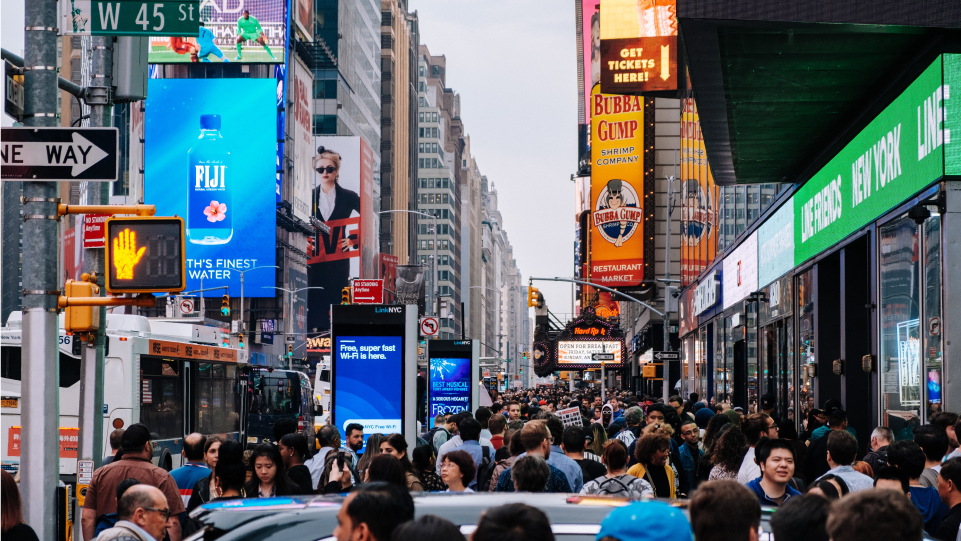January 17, 2024 | Expert Insights
DOOH advertising outside of the cookie jar in 2024

The digital advertising landscape is undergoing a significant shift with the restriction of third-party cookies. With 2024 being the year that Google will finally deprecate third-party cookies, the impact will be felt across many digital channels from online and social to audio OOH and DOOH.
Third-party cookies have long been the backbone of personalized advertising, allowing brands to target users based on their online behavior. With privacy concerns growing every day, the cookie is on the way out, forcing advertisers to pivot their strategies. How will this reshape advertising and what are the unique opportunities it presents, specifically for the dynamic world of DOOH?
The good news is that DOOH has always been cookie-less, so instead of a pivot to creating new post-cookie deprecation solutions, it’s business as usual and there are numerous opportunities to reach audiences out of the home in a meaningful way.
Opportunities for Contextual Relevance
As traditional targeting methods diminish, there's a rising opportunity for contextual relevance in DOOH advertising. Advertisers can focus on delivering content that resonates with the environment or specific locations, creating more meaningful connections with the audience without relying on individual user data.
Integration with First-Party Data
The importance of first-party data is heightened in the post-cookie era. Advertisers in the DOOH space can collaborate with vendors, retailers, or brands to gather first-party data ethically. This collaboration allows for more accurate audience insights and targeted campaigns without compromising user privacy.
Dynamic Content & Real-Time Optimization
Without the crutch of third-party cookies, DOOH advertisers can turn to dynamic content strategies. By utilizing real-time data and analytics, campaigns can be adjusted on-the-go, responding to changes in the environment or audience dynamics. This flexibility enables advertisers to stay agile and optimize campaign performance continuously. In further, it opens up the opportunity to leverage more personalized and contextually relevant content served based on trigger criteria and data integrations.
Interactive & Immersive Experiences
The shift away from cookie-based tracking provides an opportunity for DOOH advertisers to focus on creating interactive and immersive experiences. From QR codes to augmented reality (AR) integrations, campaigns can engage audiences in novel ways, fostering memorable brand interactions.
Increased Collaboration
Advertisers can strengthen partnerships with ad tech companies, retailers, and data providers to access the most relevant and of-the-moment opportunities Collaborative efforts not only enhance targeting capabilities but also facilitate a more cohesive and personalized approach to DOOH advertising.
The death of the cookie is giving way to innovation in the digital advertising space. While challenges exist, the shift provides a unique opportunity for creativity. Advertisers who embrace privacy-centric technologies, prioritize collaboration and focus on contextual relevance stand to thrive in the post-cookie era, delivering impactful campaigns that resonate with audiences while respecting their privacy.


